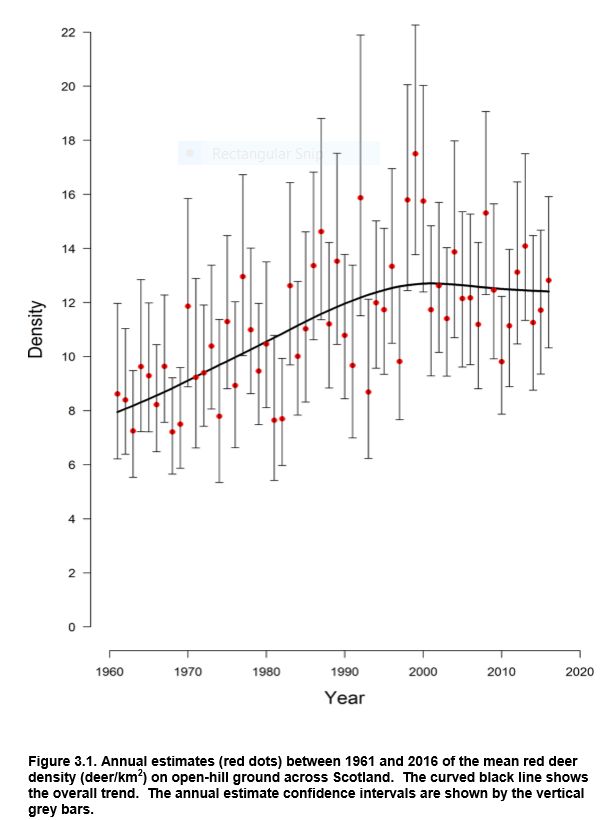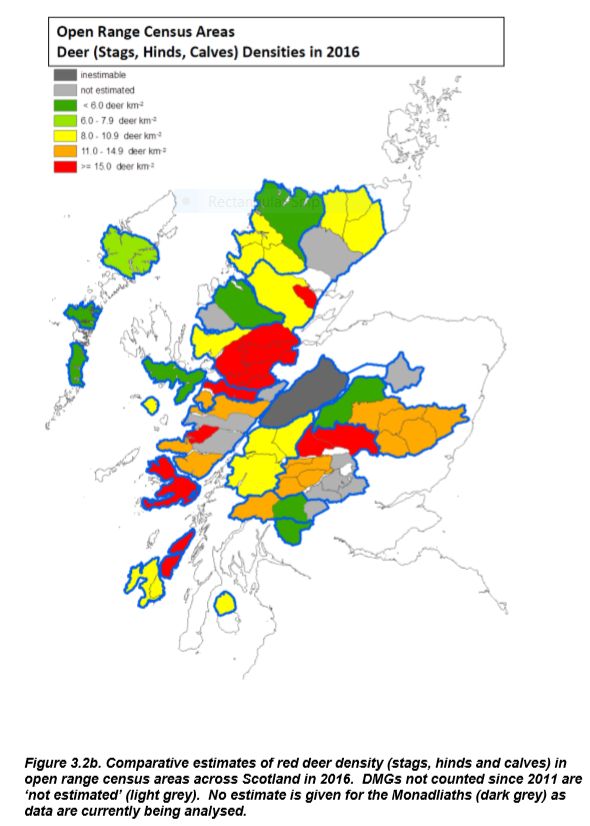
Dave Windle
As promised in the last issue, this time, I have written a more detailed review of this, now topical, subject. Late last year, SNH published a report "Deer Management in Scotland: Report to the Scottish Government from Scottish Natural Heritage 2016. This is a comprehensive review of the available data. I quote below a number of its Main Findings.
I include a graph on deer densities below. When looking at these numbers, a useful reference point is Glenfeshie where deer densities have been reduced to 0.8/km2. Adam Watson and Kenny Kortland advise that, on FCS land, they need to achieve densities of less than 3/km2 before they get widespread tree regeneration. However, this is a simplification, as in winter, deer tend to concentrate on small areas of glen bottom, preventing regeneration in the area, although allowing it higher up. Interestingly, as density drops, fecundity increases requiring that work on controlling numbers has to continue Also, as the trees regenerate they provide cover and the task of controlling deer numbers gets more difficult.
Suffice to say, based on the data in the report, we aren't even in the right ballpark!
There is nothing surprising here. Most of us know that deer numbers have increased substantially over the last 50 years and that there are some bad estates and too few good estates. However, writing it all down in an authoritative report has spurred official action. The report was considered by the Environment, Climate Change and Land Reform Committee who produced a review, 5th Report 2017, which was debated on the 2nd May.
I quote from the committee review
Regrettably, but not surprisingly, Roseanna Cunningham decided to test current intervention powers before making any legislative changes. In summary, she has decided to set up an independent review group and will "encourage SNH to use the full range of their powers". Progress will be reviewed in 2019. The press release includes some good words on improved deer management plans. However, plans are all very well, but it's actions that count. Much will depend on how SNH reacts to this encouragement. Their past performance has been poor, always seeking compromise and being easily fobbed off by vague excuses from recalcitrant estates. However, they have now been reprimanded and might change. We shall see.



Please let the webmaster know if there are problems with viewing these pages or with the links they contain.